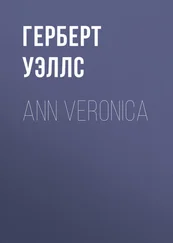railway station. Then she went up-stairs again, dressed herself
carefully for town, put on her most businesslike-looking hat, and
with a wave of emotion she found it hard to control, walked down
to catch the 3.17 up-train.
Teddy handed her into the second-class compartment her
season-ticket warranted, and declared she was "simply splendid."
"If you want anything," he said, "or get into any trouble, wire
me. I'd come back from the ends of the earth. I'd do anything,
Vee. It's horrible to think of you!"
"You're an awful brick, Teddy!" she said.
"Who wouldn't be for you?"
The train began to move. "You're splendid!" said Teddy, with his
hair wild in the wind. "Good luck! Good luck!"
She waved from the window until the bend hid him.
She found herself alone in the train asking herself what she must
do next, and trying not to think of herself as cut off from home
or any refuge whatever from the world she had resolved to face.
She felt smaller and more adventurous even than she had expected
to feel. "Let me see," she said to herself, trying to control a
slight sinking of the heart, "I am going to take a room in a
lodging-house because that is cheaper. . . . But perhaps I had
better get a room in an hotel to-night and look round. . . .
"It's bound to be all right," she said.
But her heart kept on sinking. What hotel should she go to? If
she told a cabman to drive to an hotel, any hotel, what would he
do--or say? He might drive to something dreadfully expensive,
and not at all the quiet sort of thing she required. Finally she
decided that even for an hotel she must look round, and that
meanwhile she would "book" her luggage at Waterloo. She told the
porter to take it to the booking-office, and it was only after a
disconcerting moment or so that she found she ought to have
directed him to go to the cloak-room. But that was soon put
right, and she walked out into London with a peculiar exaltation
of mind, an exaltation that partook of panic and defiance, but
was chiefly a sense of vast unexampled release.
She inhaled a deep breath of air--London air.
Part 3
She dismissed the first hotels she passed, she scarcely knew why,
mainly perhaps from the mere dread of entering them, and crossed
Waterloo Bridge at a leisurely pace. It was high afternoon,
there was no great throng of foot-passengers, and many an eye
from omnibus and pavement rested gratefully on her fresh, trim
presence as she passed young and erect, with the light of
determination shining through the quiet self-possession of her
face. She was dressed as English girls do dress for town,
without either coquetry or harshness: her collarless blouse
confessed a pretty neck, her eyes were bright and steady, and her
dark hair waved loosely and graciously over her ears. . . .
It seemed at first the most beautiful afternoon of all time to
her, and perhaps the thrill of her excitement did add a
distinctive and culminating keenness to the day. The river, the
big buildings on the north bank, Westminster, and St. Paul's,
were rich and wonderful with the soft sunshine of London, the
softest, the finest grained, the most penetrating and least
emphatic sunshine in the world. The very carts and vans and cabs
that Wellington Street poured out incessantly upon the bridge
seemed ripe and good in her eyes. A traffic of copious barges
slumbered over the face of the river-barges either altogether
stagnant or dreaming along in the wake of fussy tugs; and above
circled, urbanely voracious, the London seagulls. She had never
been there before at that hour, in that light, and it seemed to
her as if she came to it all for the first time. And this great
mellow place, this London, now was hers, to struggle with, to go
where she pleased in, to overcome and live in. "I am glad," she
told herself, "I came."
She marked an hotel that seemed neither opulent nor odd in a
little side street opening on the Embankment, made up her mind
with an effort, and, returning by Hungerford Bridge to Waterloo,
took a cab to this chosen refuge with her two pieces of luggage.
There was just a minute's hesitation before they gave her a room.
The young lady in the bureau said she would inquire, and Ann
Veronica, while she affected to read the appeal on a hospital
collecting-box upon the bureau counter, had a disagreeable sense
of being surveyed from behind by a small, whiskered gentleman in
a frock-coat, who came out of the inner office and into the hall
among a number of equally observant green porters to look at her
and her bags. But the survey was satisfactory, and she found
herself presently in Room No. 47, straightening her hat and
waiting for her luggage to appear.
"All right so far," she said to herself. . . .
Part 4
But presently, as she sat on the one antimacassared red silk
chair and surveyed her hold-all and bag in that tidy, rather
vacant, and dehumanized apartment, with its empty wardrobe and
desert toilet-table and pictureless walls and stereotyped
furnishings, a sudden blankness came upon her as though she
didn't matter, and had been thrust away into this impersonal
corner, she and her gear. . . .
She decided to go out into the London afternoon again and get
something to eat in an Aerated Bread shop or some such place, and
perhaps find a cheap room for herself. Of course that was what
she had to do; she had to find a cheap room for herself and work!
This Room No. 47 was no more than a sort of railway compartment
on the way to that.
How does one get work?
She walked along the Strand and across Trafalgar Square, and by
the Haymarket to Piccadilly, and so through dignified squares and
palatial alleys to Oxford Street; and her mind was divided
between a speculative treatment of employment on the one hand,
and breezes --zephyr breezes--of the keenest appreciation for
London, on the other. The jolly part of it was that for the
first time in her life so far as London was concerned, she was
not going anywhere in particular; for the first time in her life
it seemed to her she was taking London in.
She tried to think how people get work. Ought she to walk into
some of these places and tell them what she could do? She
hesitated at the window of a shipping-office in Cockspur Street
and at the Army and Navy Stores, but decided that perhaps there
would be some special and customary hour, and that it would be
better for her to find this out before she made her attempt. And,
besides, she didn't just immediately want to make her attempt.
She fell into a pleasant dream of positions and work. Behind
every one of these myriad fronts she passed there must be a
career or careers. Her ideas of women's employment and a modern
woman's pose in life were based largely on the figure of Vivie
Warren in Mrs. Warren's Profession. She had seen Mrs. Warren's
Profession furtively with Hetty Widgett from the gallery of a
Stage Society performance one Monday afternoon. Most of it had
been incomprehensible to her, or comprehensible in a way that
checked further curiosity, but the figure of Vivien, hard,
capable, successful, and bullying, and ordering about a veritable
Teddy in the person of Frank Gardner, appealed to her. She saw
herself in very much Vivie's position--managing something.
Her thoughts were deflected from Vivie Warren by the peculiar
behavior of a middle-aged gentleman in Piccadilly. He appeared
Читать дальше












